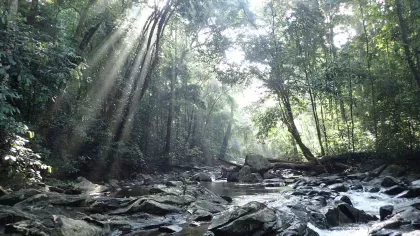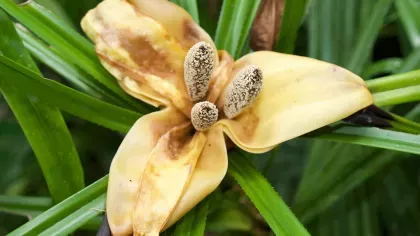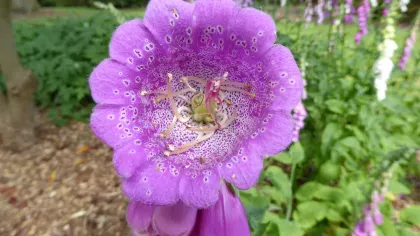10 September 2020
Kew contributes to WWF’s Living Planet report
The Living Planet 2020 report shows nature is unravelling.

In a major report compiled by WWF, in collaboration with the Zoological Society London (ZSL), released today, it’s revealed that there has been a two-thirds decline in wildlife populations since 1970.
The Living Planet Report 2020 is a comprehensive overview of the state of our natural world determined through the Living Planet Index, which tracks trends in global wildlife abundance.
More than 125 experts globally, including Kew scientists, contributed to the work, which shows that biodiversity is being destroyed by humans at an unprecedented rate.
This new research shows that the huge loss in biodiversity we are witnessing is driven largely by environmental destruction such as deforestation, unsustainable agriculture and the illegal wildlife trade.
To assist this research, Kew scientists provided data for plants, quantifying and explaining the threats they face.
Prof. Alexandre Antonelli, Director of Science, RBG Kew says
“Threatened animals have dominated the global debate on biodiversity loss, but plants – which are the cornerstone of terrestrial ecosystems and provide countless benefits to people – are facing a similar fate. The 2020 Living Planet Report includes contributions by five scientists from Kew and collaborators which highlight the risk of losing the useful traits plants provide, and outline plant species that have already gone extinct. It is therefore crucial that plants, animals, and other organisms such as fungi are considered jointly in the urgent and vital work to protect nature.”
The report calls for urgent global action to halt and reverse biodiversity loss by the end of the decade.
A glimmer of hope exists as research published in Nature by WWF and collaborators, illustrates that if bolder, more ambitious conservation efforts are adopted, along with changes to food production and consumption, the loss of nature caused by humans can be steadied and ultimately reversed.
Next week, global leaders will be gathering (virtually) for the United Nations General Assembly, when they will likely review the progress made on the Sustainable Development Goals, the Paris Agreement and the Convention on Biological Diversity (CBD).
It’s hoped that this research will help secure a New Deal for Nature and People to safeguard wildlife.
Read the report
WWF (2020) Living Planet Report 2020 - Bending the curve of biodiversity loss. Almond, R.E.A., Grooten M. and Petersen, T (Eds). WWF, Gland, Switzerland.



